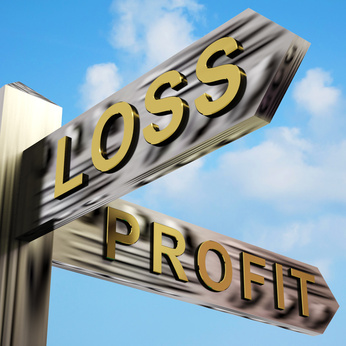ODDS ARE AGAINST YOU BEING A SUCCESSFUL TRADER
Sorry to burst your bubble but failure is the highest probable outcome for most in this business. Failure doesn’t come because the markets are “rigged” or the belief that “they” are monitoring your odd lot trades to take the other side only to cause you pain in some nefarious conspiracy. No, the reason most people fail at trading comes from within.
Over the last decade I’ve worked with thousands of traders. One commonality, for the majority, was that they came to the market with incongruous goals based on wild assumptions about the financial industry.
Here are four of the most common beliefs of new traders that I’ve seen.
THE MARKETS ARE EASY
In my work with traders over the last decade I’ve just about seen it all. From the expectation that four green lights means go long to buying a stock when it touches a subjectively drawn line on a price chart. Making millions doesn’t get much easier than that, right? The only thing easy about the market is losing your trading capital.
The markets are not easy. What would you think if someone fresh off the street walked into your favorite restaurant, having never cooked a meal in their life, claiming they were going to cook your dinner because they read a book about the culinary arts earlier and it seemed “easy?” If you came into the markets thinking it’s easy to make money you’re wrong. Perhaps you were naive and you’ve had some success, great! However, you are not the rule but the exception.
I CAN REPLACE MY INCOME
Many retail traders come to the markets after losing a job. They were up late watching TV, ended up attending a seminar at the conference center at some hotel and…you get the idea. If the intent of trading is to replace an 80K salary then plan on working five times harder and twice as long to EARN that in the markets.
Undue pressure mounts as each trade “needs” to be a winner in order to pay the mortgage or get Johnny braces. Nobody needs THAT hanging over them, especially at the beginning of a trading career. Do yourself a favor and get a consulting gig or some other form of income while you learn to trade part-time.
I DON’T NEED ANYONE’S HELP
After failing on my own in the markets the best decision I made was to seek out a mentor. I needed someone who had a vast knowledge of the markets that could give some guidance because I had no idea where to focus my efforts. I was fortunate enough to have a brother in the business. Most are not so fortunate.
There are, however, plenty of mentors out there to learn from. Unfortunately there are also lots of charlatans that will do nothing but fleece your pockets. Do your due diligence in finding someone who participates in the markets in a similar way that you’d like to. Ask questions. Never assume. If they want to help you, you’ll know pretty quickly. Once a relationship is formed, learn graciously.
I MUST TRADE
As a therapist I only made money when I had a client in my office. Therefore, I tried to book clients back-to-back each day for 7 hours. I transferred that belief when I began my trading career. I believed that I had to have a position on at all times or I wasn’t making money. True, in a sense, but having a position on when I shouldn’t was losing money. I never lost money when I wasn’t in session.
The belief of always having money at work is very common among newer traders. It’s OK to be in cash on the sidelines. Forcing trades isn’t profitable over the long haul. Doing so leads to low probability trading that eventually wipes out months of profitable trading. Take the downtime as an opportunity to review your trade metrics, hone your edge or conduct some market research. If you still feel the need to trade then perhaps there’s an addiction issue that needs to be addressed.
IN CLOSING
The message of this article isn’t to say that you can’t be successful at trading. The message is that being successful (with longevity) takes more time, money and discipline than most individuals are willing to commit to. Personally, I had an 18-month learning period before I became a better trader. After two years I was still not profitable, but better at managing risk. It took me nearly three years and tens of thousands of dollars to become profitable after finding my niche in the market.
If longevity is your ultimate goal of trading then humble yourself as humility is a prerequisite for knowledge. Roll up your sleeves because the hours will be long and the work is mentally taxing. Over time you’ll learn to respect the varied nuances of the financial markets while finding your niche.
[Editor’s note: Many traders admit it is their own psychology that gets in the way of making money. Do you have any questions for Miller? Post them below in our Comments section. Find him daily on Twitter @PsychTrader ]
= = =




